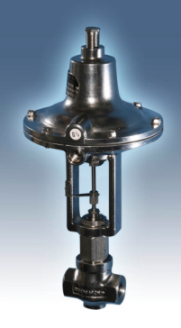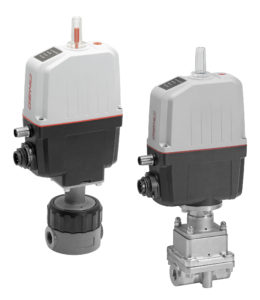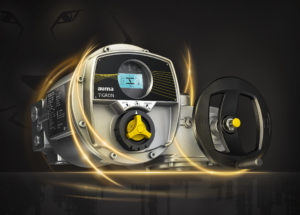Control Valves Ideally Suited to Additive Injection
Liquids handling specialists Pump Engineering offer the extensive range of Badger Meter control valves which enable the precise control of liquids and gases in the most challenging applications and demanding environments.

Pump Engineering
A recent example is the RC200 an all stainless steel valve designed for controlling additives in oil field applications.
Typical applications for this type of valve is where additives such as methanol or glycols, corrosion or scale inhibitors need to be accurately and reliably injected into pipelines to prevent ice formation, scale build-up, corrosion, or other flow inhibitors occurring.
Available as a globe or angle pattern in either ¼”, ½”, ¾” or 1” sizes, these compact valves are designed to operate at pressures up to 5000 psi and at temperatures ranging from -80°C to 500°C. They have a Cv range from 0.0000018 to 2.5 and rangeability up to 60:1, making them ideal for additive injection, sampling and pH control.
In addition to materials such as 316 stainless steel for the valve body, with stainless steel or stellite trims, Badger valves can be supplied in alternative materials such as Monel, Hastelloy B & C, titanium and zirconium. Standard packing is PTFE chevron rings, while Grafoil or Kalrez are offered as special options.
The RC200 valve can be supplied with pneumatic actuators or positioners, air-to-open (ATO) or air-to-close (ATC) in die-cast aluminium, with 316L stainless steel as an option. Electric actuators and positioners can also be supplied if air is not available or for slow operation.
In addition to oil field additive applications, Badger valves are used extensively in Pilot plants, snack flavouring, petroleum refining, chemical processing and the manufacture of synthetic fuels and lubricants.
Source: Pump Engineering Ltd




